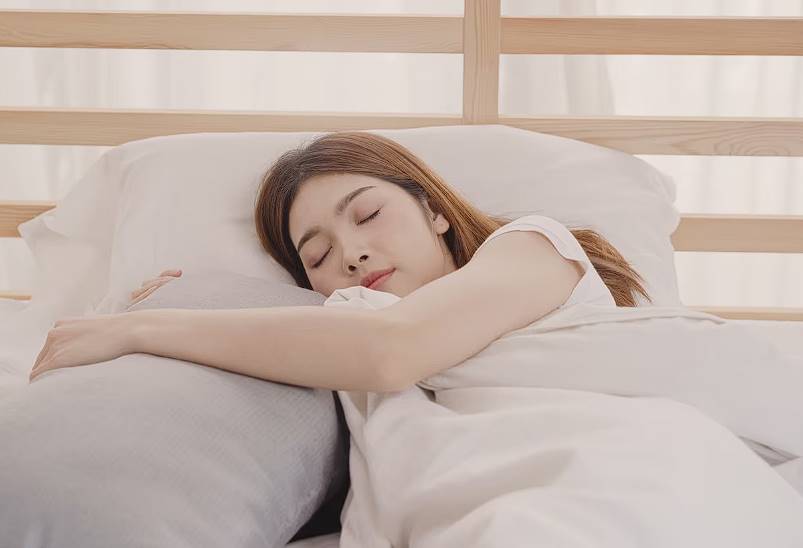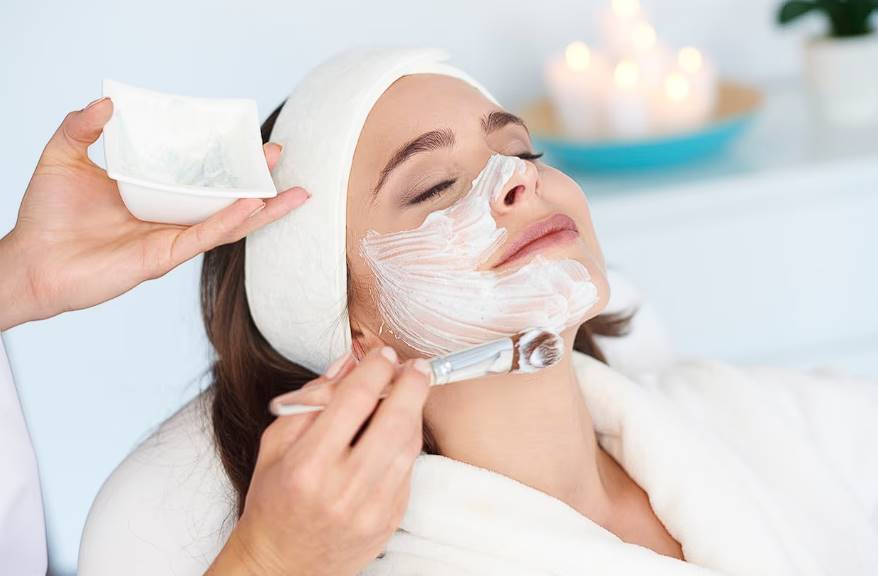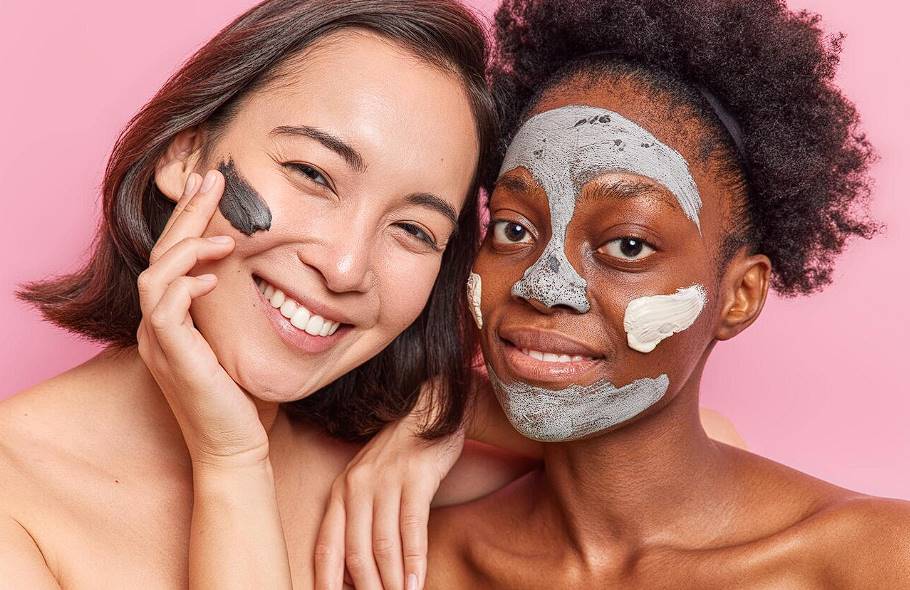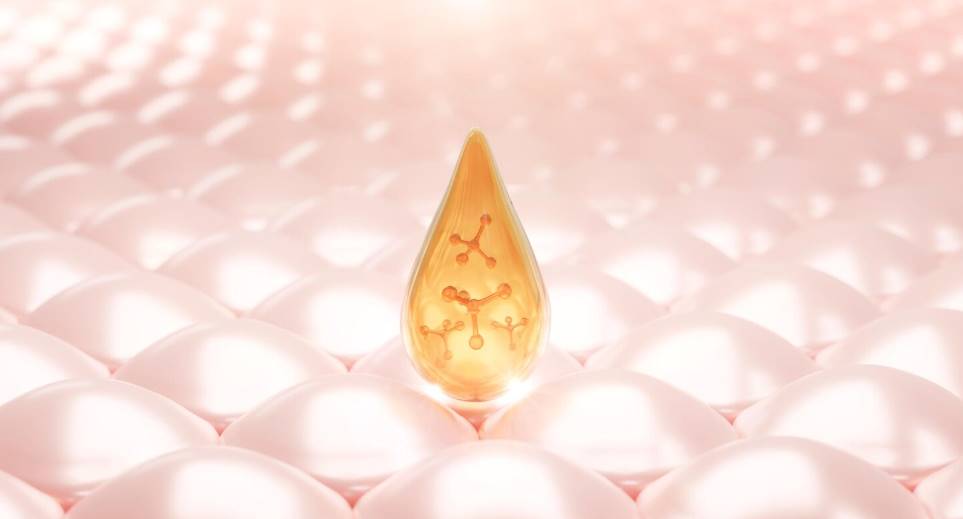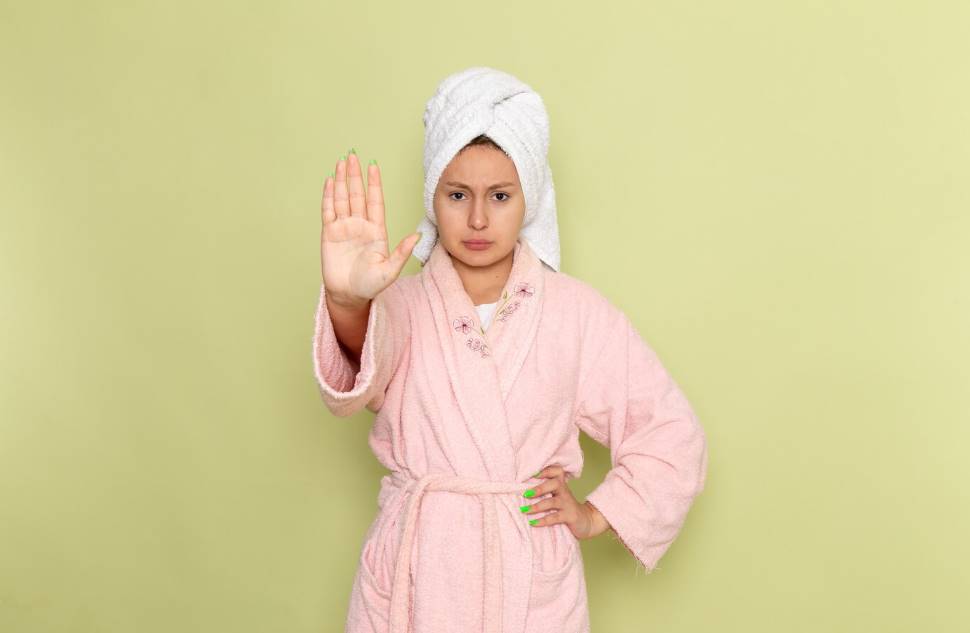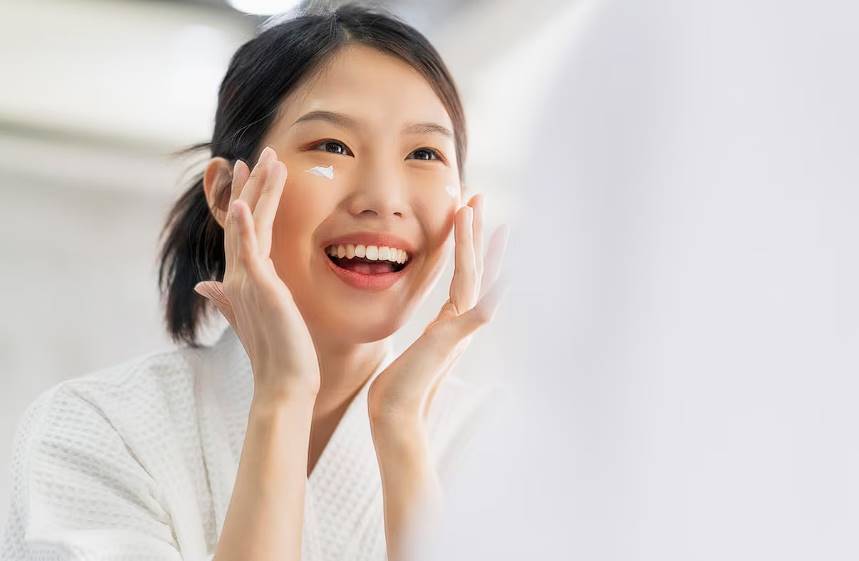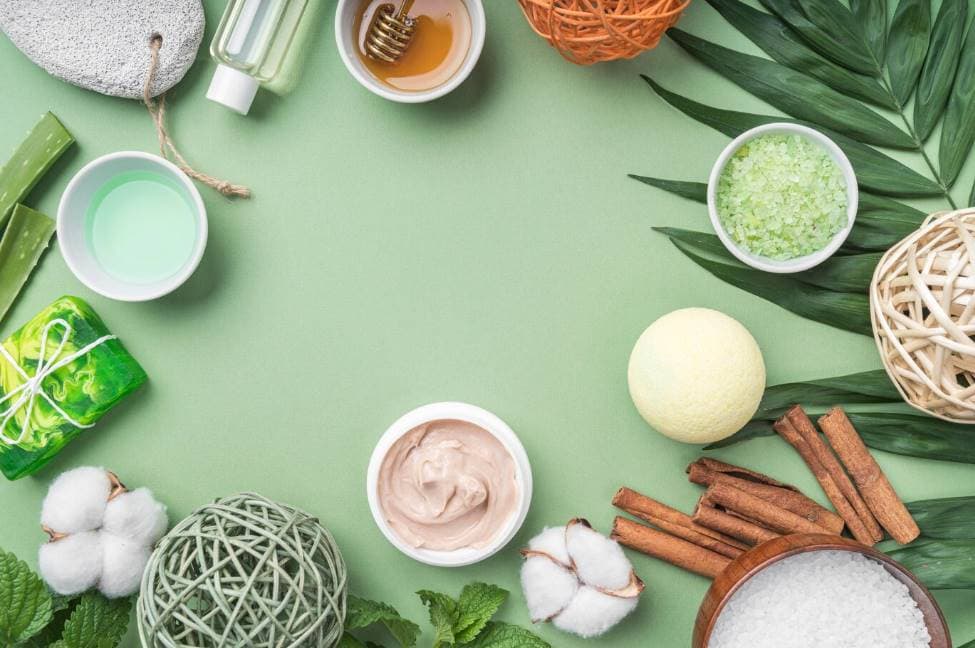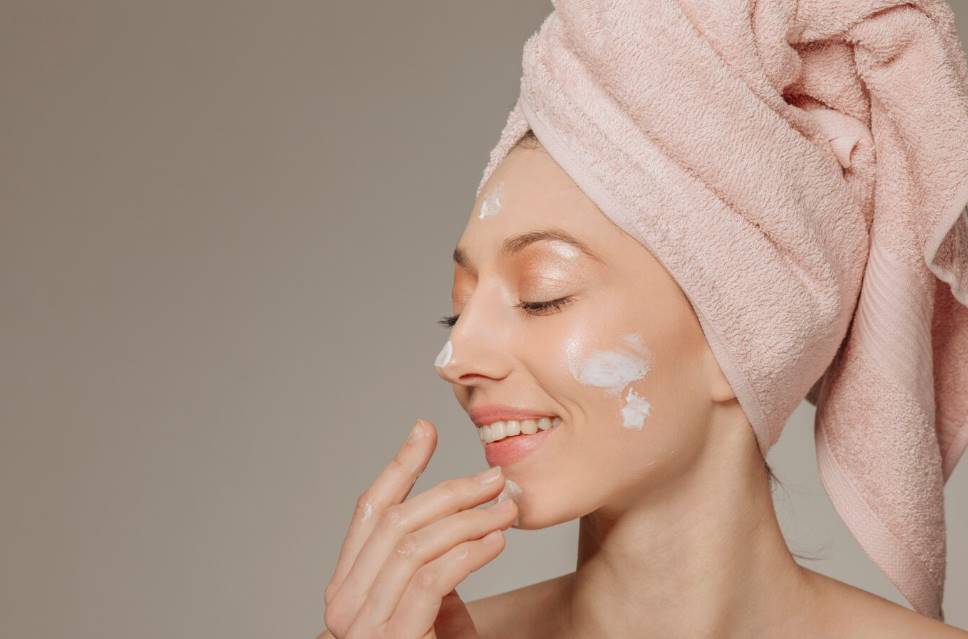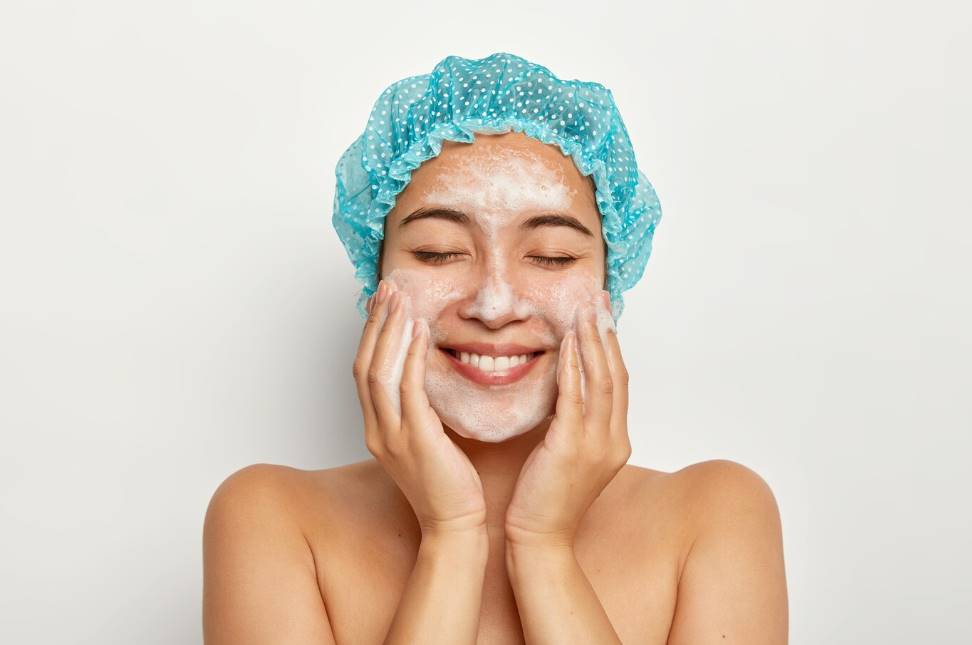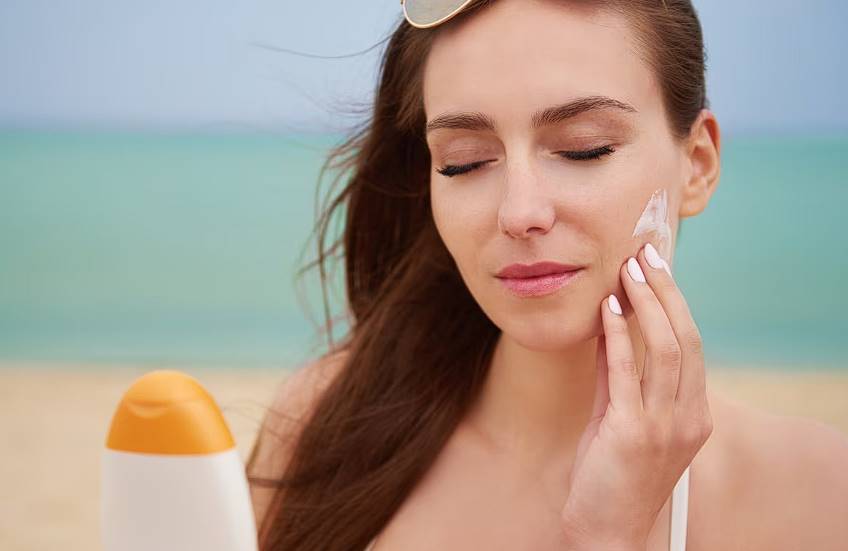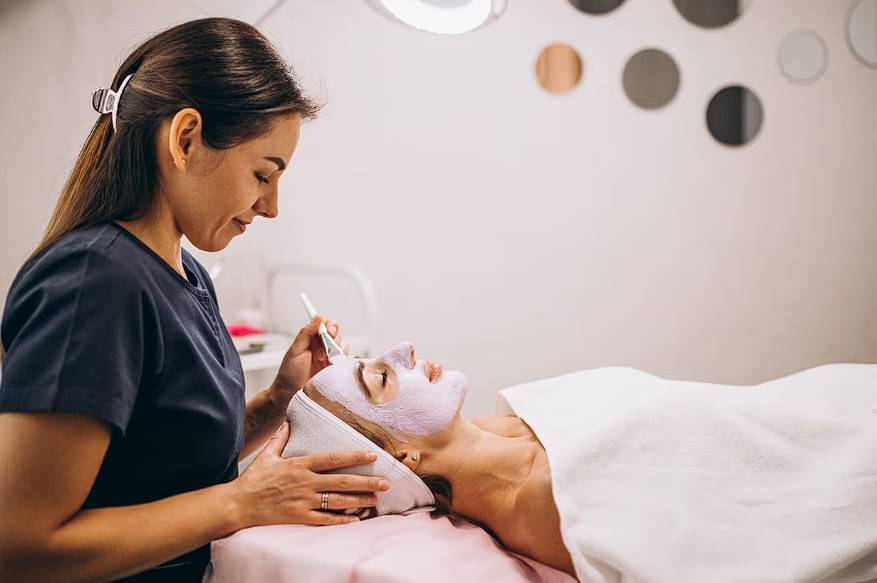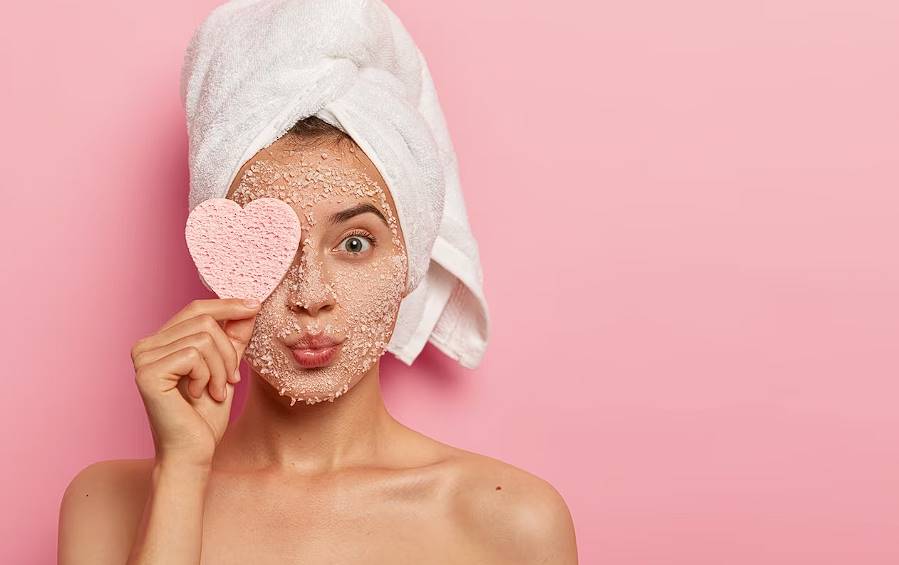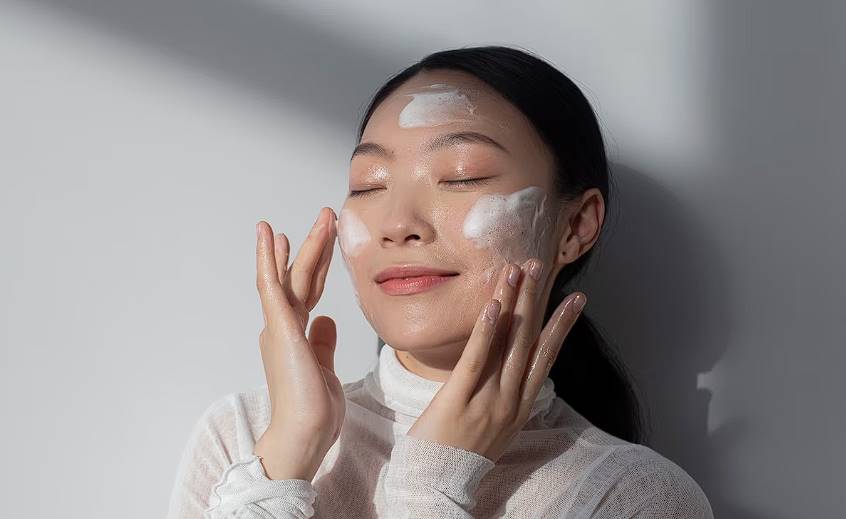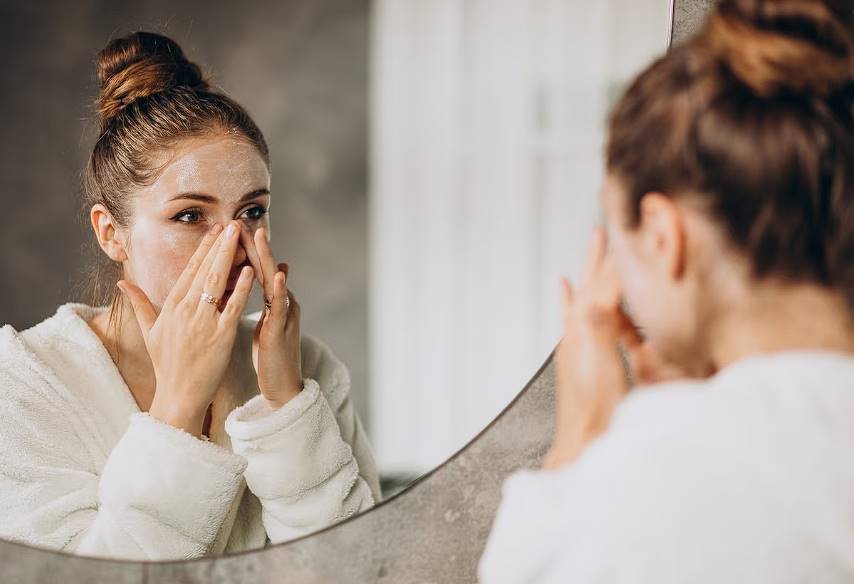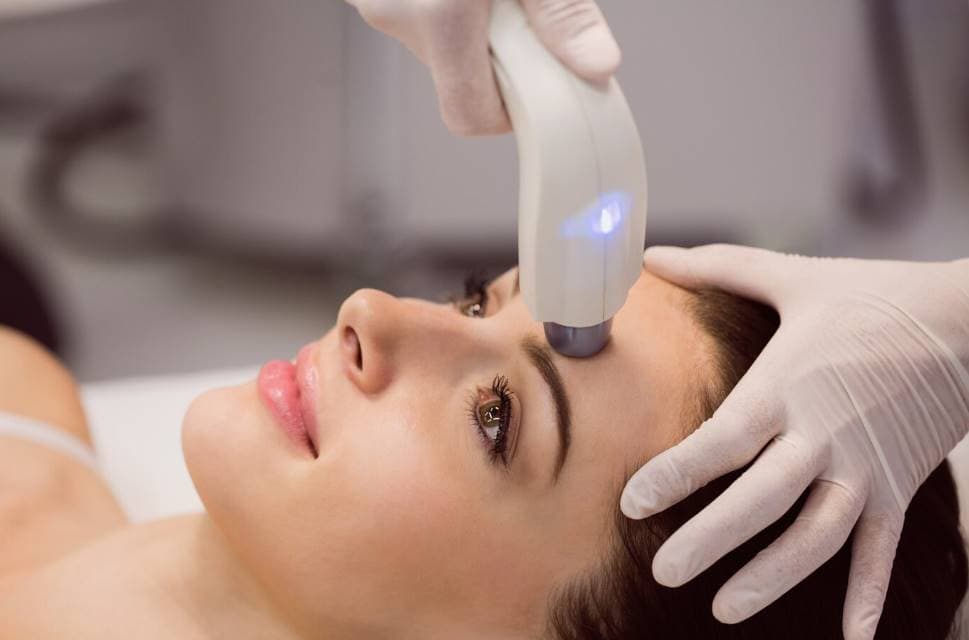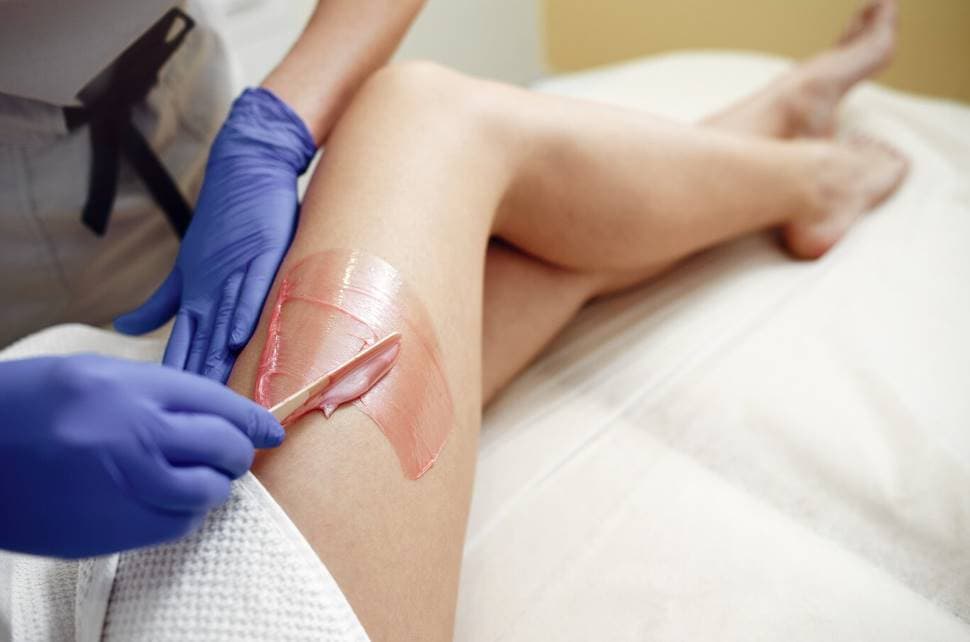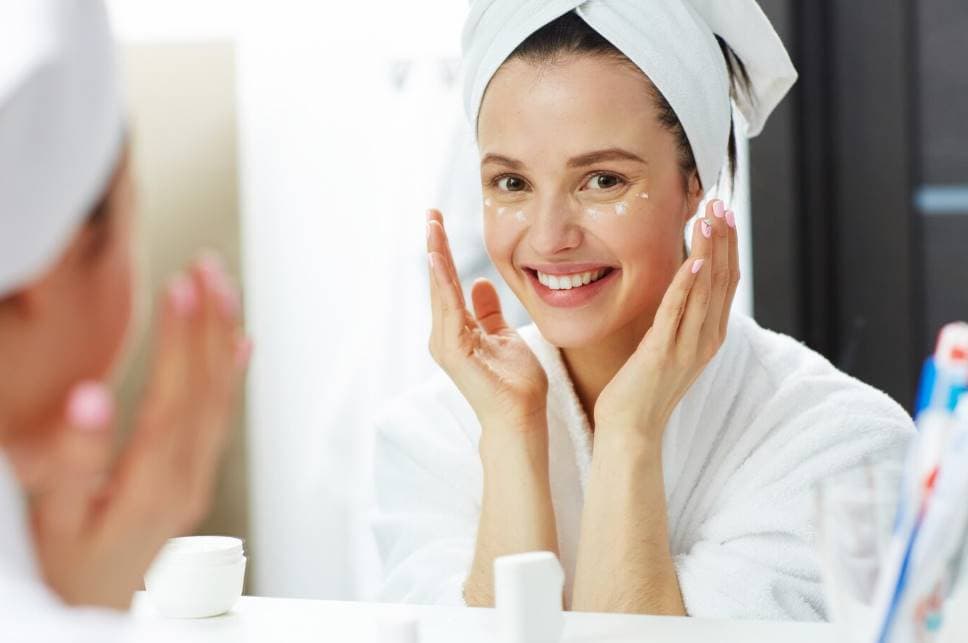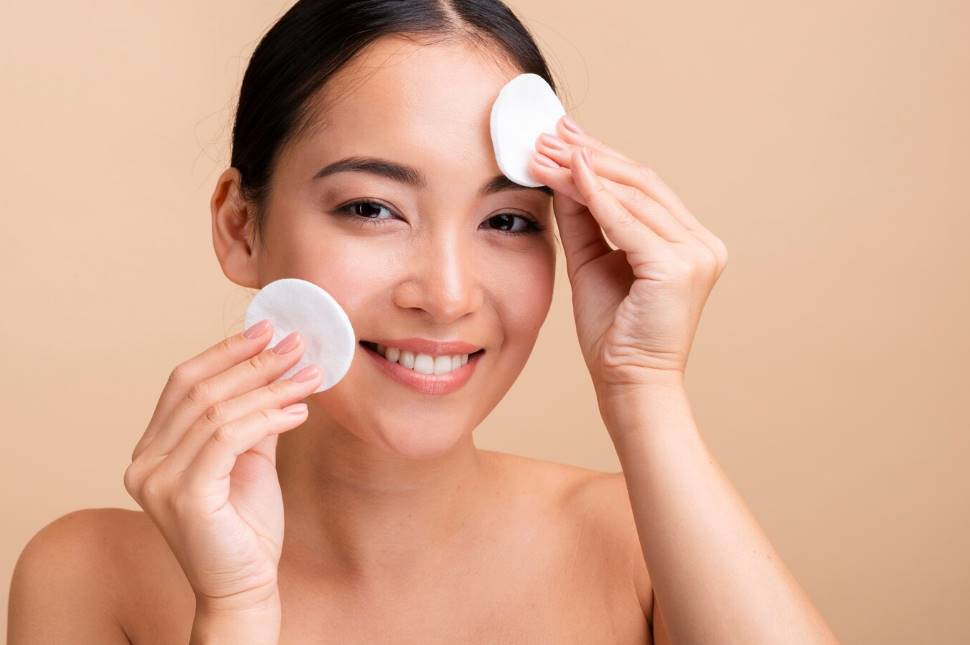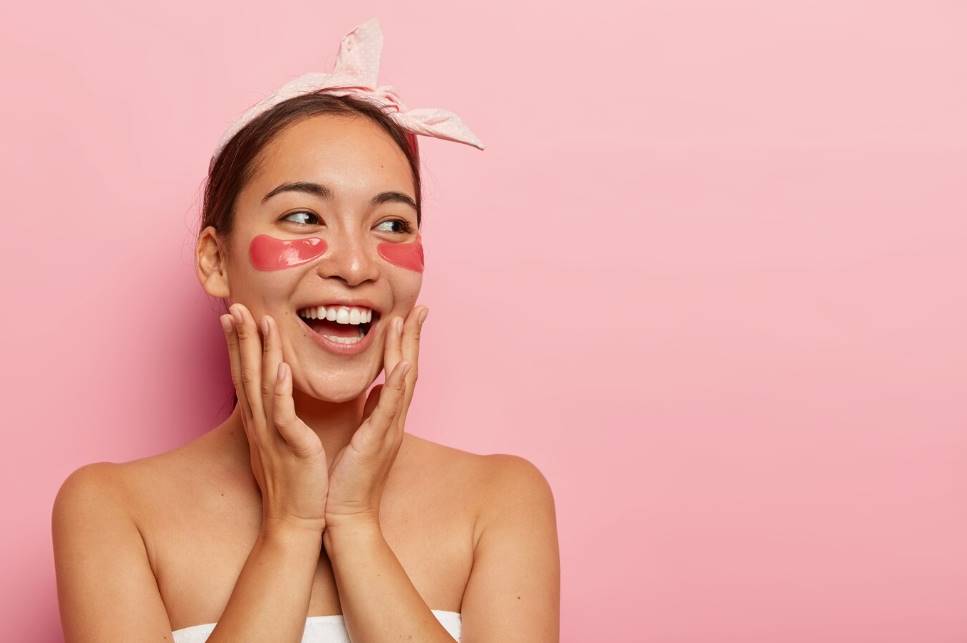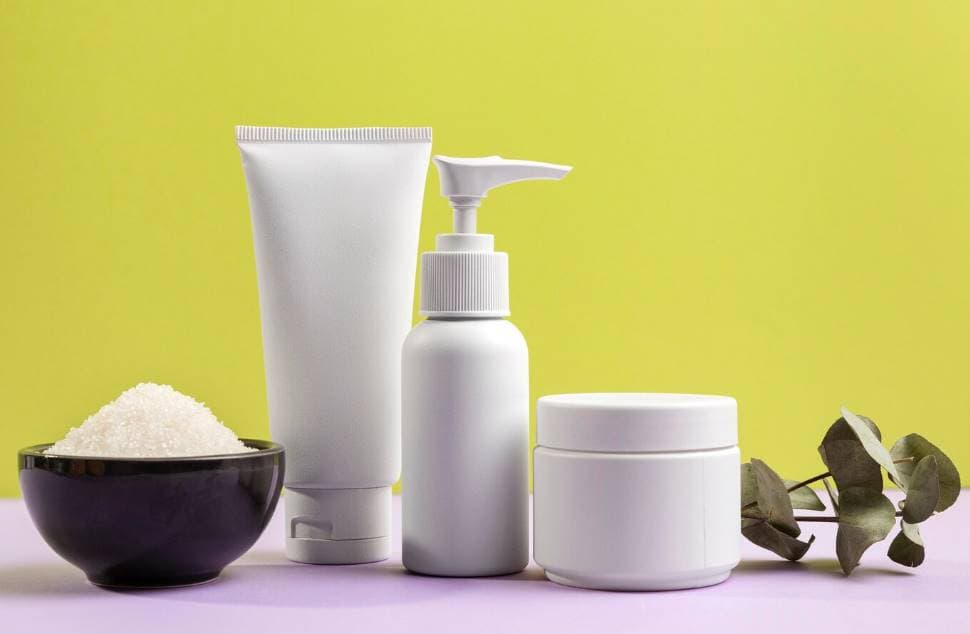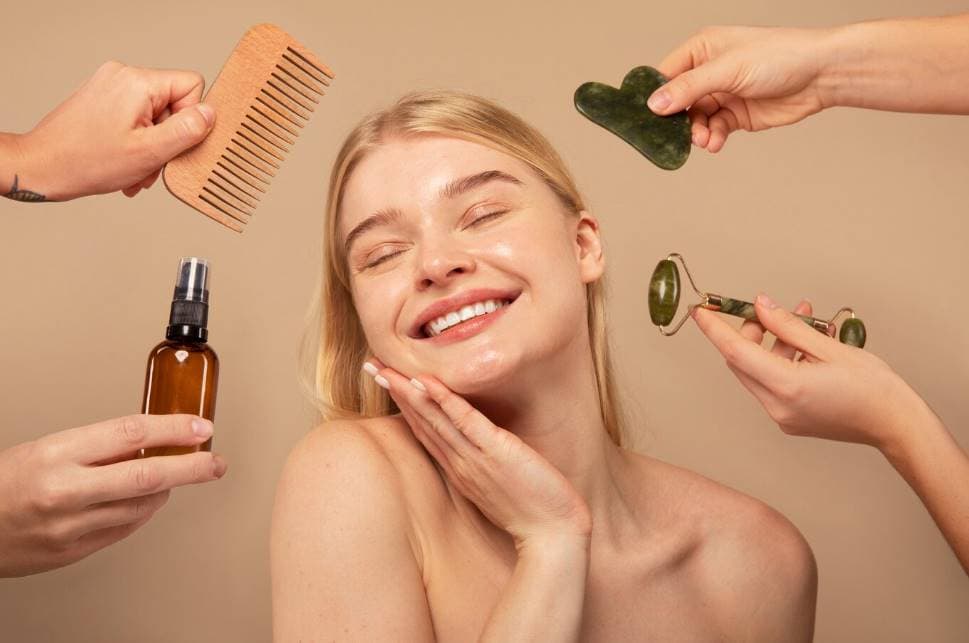Getting a good night's sleep is often overlooked as we go about our days. This blog post discusses sleep and skin health and how to increase beauty sleep quality and length.
Join us as we reveal how sleep affects your skin's vitality, from renewal and healing to the luminous morning glow, and why getting enough shut-eye isn't just a luxury but a necessary investment in your health and appearance.
What Happens to Your Skin When You Don't Get Enough Sleep?
Three unique sleep phases help your body restore and improve your health, including your skin, while you sleep.
During the first three hours of sleep, the pituitary gland secretes somatotropin (human growth hormone). This hormone helps keep skin looking fresh and healthy. Daily skin repairs are hindered in the absence of somatotropin. Reduced somatotropin levels hasten old age.
As you sleep, your body's melatonin production will peak about two hours later. As an antioxidant, melatonin prevents the skin from deteriorating from exposure to free radicals, which are unstable atoms that can lead to disease and accelerated aging.
Cortisol and body temperature drop in the penultimate stage of sleep, Rapid Eye Movement (REM). The stress hormone cortisol. Muscles loosen, and collagen production rises with the skin's cooling. All living things include collagen, a ubiquitous protein. It eliminates fine lines and wrinkles and softens skin. Your skin will mend better if you sleep well.
Investigate the processes during sleep and the unique issues that can arise from insufficient rest.
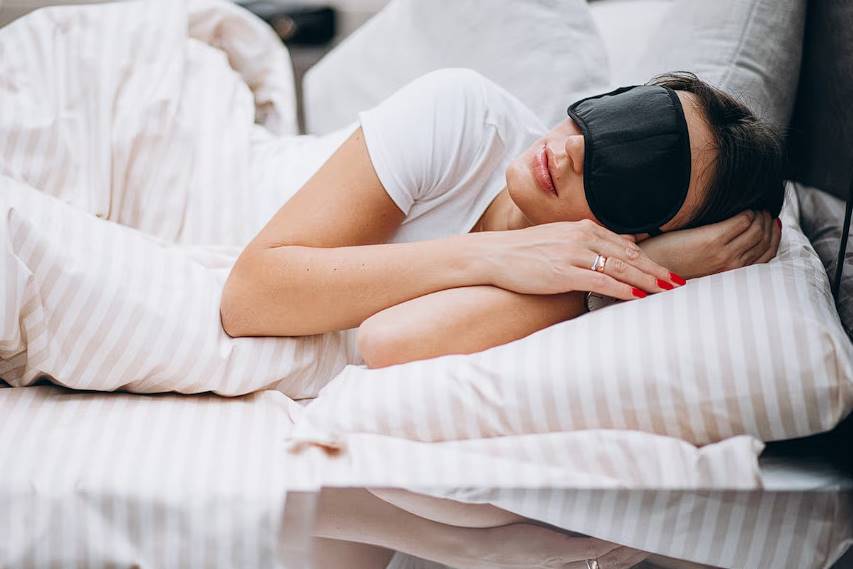
Dry Skin
While sleeping, human beings naturally produce more sweat. Extra sweating during sleep is the body's technique of restoring moisture levels through the skin. Wrinkles can be diminished with the help of this all-natural moisturiser. Sleep deprivation reduces your body's PH, which can dry out your skin.
Poor Skin Texture
Cortisol levels increase when people don't get enough sleep. The inflammation triggered by this hormone breaks down the proteins that keep your skin soft and radiant. Acne and allergic responses are two skin issues that inflammation can exacerbate.
Lack of sleep can also impair blood flow and lead to other health problems. The result is less oxygen in the blood, which can give the appearance of greyish, pigmented spots on the skin.
Dark Circles Under the Eyes
The dark circles and puffiness around the eyes are a dead giveaway. It would help if you got more shut-eye. It's not like when your eye gets red and swollen from an illness, or you get bruises from an accident. Dark circles under the eyes can result from an iron shortage, which indicates that the body's tissues aren't receiving enough oxygen. The lack of sleep is usually to blame for this. While we sleep, our bodies' blood circulation rises, helping to revitalise our skin.
Pigmentation below the eyes can be reduced with iron and folic acid supplementation.
Dark circles beneath the eyes aren't typically a health issue, yet many people still find them unattractive. They are unattractive.
Although concealers sold at the drugstore can help, the Mayo Clinic advises seeking the counsel of a dermatologist for long-term solutions to dark circles around the eyes.
A dermatologist can prescribe a lotion or a combination of therapies to lighten or remove dark circles beneath the eyes, depending on the underlying cause. Some patients benefit from laser or chemical peels. Surgery can alleviate lid puffiness, and injectable fillers can hide shadows.
However, getting a good night's sleep should be the first step in getting rid of under-eye bags.
Collagen and the Effects of Ageing
Lack of sleep causes your body to work harder to restore hormonal balance, increasing stress levels. Collagen in the skin breaks down over time from stress. Collagen is a protein that is essential to the body. It aids in the skin's structure and suppleness. Collagen loss makes the skin less plump and smooth.
Is There Anything You Can Do?
- Nap it off. The first step is to develop a routine for relaxing just before bedtime. Make 10 o'clock every night your go-to sleep hour.
- The recommended amount of sleep per night is seven to nine hours.
- When getting ready for bed, avoid using tobacco products and drinking alcohol.
- You should always have some water handy; a glass next to your bed is a good place to start.
- Don't bring your phone or other electronics into the bedroom. If you awaken in the wee hours, you will be less tempted to check your phone and cruise through social media.
- Invest in high-thread-count, high-quality sheets if you value your sleep.
- It would help to elevate your head with a bed wedge or cushion. If you suffer from snoring, acid reflux, or postnasal drip, this will help you get a better night's sleep, enhancing the quality of your skin.
- Before night, remove debris, oil, and makeup with a light facial cleanser. Putting on makeup before night can stop your skin from sweating normally.
Last, put on some moisturiser about 15 minutes before bed. Consult a dermatologist to determine which moisturising product is best for your skin.
Vitamin C and Green tea can help rejuvenate skin overnight if eaten frequently, so try these before buying beauty products to fight a tired appearance.
Before going to bed, applying an anti-aging serum and eye cream will be beneficial, but you should wait at least fifteen to twenty minutes to allow your skin to absorb the ointment fully. They can get to work immediately without wasting time wiping off their pillowcases.
Remember that sleep deprivation accelerates the aging process. While you sleep, your body's growth hormones help repair damaged skin cells. If you don't get enough shut-eye, your skin won't be able to repair itself from daily wear and tear. This may hasten the aging process in the long run.
Beauty Sleep
There are several positive effects of regular, high-quality sleep. A good night's sleep may do wonders for a person's mental state by restoring their energy and revitalising their physique. People who get enough sleep are often thought to be more physically beautiful.
The term "beauty sleep" is often used, yet there is no proof that getting enough shut-eye makes you more attractive. These differences may contribute to the information gap since beauty standards differ among cultures and individuals.
Explaining the Science Behind "Beauty Sleep"
The brain, metabolism, immune system, and skin rely on proper sleep for maintenance and repair. Among the many recuperative activities that take place when we sleep are:
- Growth hormone secretion is stimulated, which aids in muscle development and cellular repair.
- Production of anti-bacterial and anti-viral hormones
- The establishment and upkeep of neural circuits involved in memory and learning
These processes can affect how a person feels about their physical attractiveness.
Effects of Lack of Sleep on One's Appearance
A lack of sleep can harm the body, mind, and attractiveness. Research suggests that the average adult needs seven to nine hours of sleep every night, while over a third of adults receive less. Negative changes to the skin, lips, and eyes can occur after a night of bad sleep, including:
- Atypically light skin
- Discoloration and wrinkling of the lips and mouth
- Mouth corners that hang down
- Eyelid sagging or drooping
- Eyes that are red or puffy
- Puffy bags under the eyes
Lack of sleep can produce noticeable changes in appearance, which might have serious social consequences. Character, aggressiveness, and trustworthiness evaluations all involve facial cues. Scientists have discovered that people who don't get enough sleep tend to look down on themselves and tired.
Possible Benefits of Getting Your Beauty Rest
The body undergoes a variety of restoration and repair activities when you sleep. The skin and hair are just two examples of how these processes can affect outward appearance. Getting a good night's sleep nightly may help in these respects.
Wrinkle Prevention
Reduced wrinkles may be one of the potential benefits of beauty sleep. Several proteins, including collagen and elastin, contribute to the skin's elasticity and flexibility. Sleep deprivation has been shown to lower immunological function, lowering collagen quality and strength. Wrinkles and other signs of skin damage may develop as a result. Crow's feet, Wrinkles, and frown lines tend to deepen in those who don't get enough shut-eye. A one-day sleep deprivation research of 40-year-old Korean women observed similar alterations. There was also a considerable decline in the skin's elasticity or springiness. More study is needed to determine the relative contributions of sleep deprivation and quality sleep in causing and maintaining wrinkles.
Improves Skin's Complexion
Getting sufficient quality sleep consistently helps in keeping skin clear. The circadian rhythm controls several aspects of human biology, including the internal clock and sleep-wake cycles, as well as the behaviour of the skin.
The nighttime rise in core body temperature and the increased blood flow to the skin aid in healing severe skin injury. Also, studies have shown that the morning is when your body is most effective in repairing UV-damaged skin cells.
Lack of sleep and staying up too late can contribute to unfavourable skin tone and texture changes. Researchers have shown that people without sleep experience skin peeling, dehydration, and a shiny appearance. Sleeping late can increase water loss and oil release, contributing to dehydrated skin and acne.
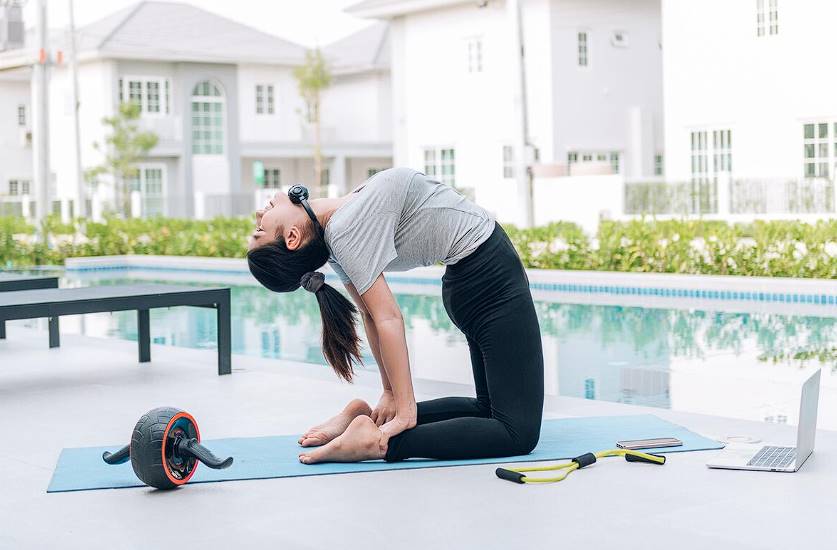
Eliminating Under-Eye Bags
Dark under-eye circles are a common visual indicator of exhaustion and sleepiness. However, little evidence supports the claim that beauty sleep can diminish under-eye circles. Periorbital hyperchromia, often known as dark circles under the eyes, has several causes.
Those with darker skin tones or a hereditary predisposition to under-eye darkness may be more susceptible to the condition. Some people's skin is more susceptible to the effects of light and shadow than others because it is inherently thin or because they have loose, sagging skin around their eyes.
Enhancing Hair's Health
The health and appearance of your hair may take a hit if you don't get enough shut-eye. High stress, caused by inadequate sleep, releases cortisol. Increased cortisol levels cause an increase in sebaceous oil production throughout the body, particularly at the base of each hair. Oily hair may be a side effect of having oily hair.
Hair loss is another potential side effect of stress, especially sleep deprivation-induced stress. Hair growth typically occurs in a three-stage cycle:
- Degeneration of Growth
- Breaking apart
Scientists have discovered that when stress hormone production is elevated, the growth phase of the cycle is delayed or prevented altogether.
Conclusion
Sleep is absolutely necessary for the upkeep of healthy skin and a youthful appearance. The production of growth hormones in the body, which assist in the repair of damaged skin cells, is dependent on sleep. The pituitary gland releases somatotropin during the first three hours of sleep. This hormone is responsible for maintaining a youthful and healthy appearance of the skin.
Melatonin production reaches its peak approximately two hours later, so limiting further damage to the skin caused by free radicals. The Rapid Eye Movement (REM) stage of sleep is the last stage of sleep, and during this stage, cortisol and body temperature drop, which causes muscles to relax and produces collagen.
Inadequate sleep can cause dark circles under the eyes, dry skin, poor skin texture, and loss of collagen in the skin. An iron deficiency may be the cause of dark circles under the eyes; however, these circles can be lightened by taking iron and folic acid supplements.
Depending on the underlying reason of dark circles beneath the eyes, a dermatologist may recommend a lotion or a combination of treatments in order to lighten or remove the condition.
Loss of collagen can force the body to exert more effort in order to restore hormonal equilibrium, which can raise levels of stress. To prevent this, build a soothing routine to follow before going to bed, purchase sheets with a high thread count, elevate your head by using a bed wedge or cushion, remove dirt, oil, and makeup from your face with a gentle facial cleanser, and use an anti-aging serum and eye cream before going to sleep.
Keep in mind that not getting enough sleep speeds up the ageing process, as growth hormones are responsible for repairing damaged skin cells while you sleep.
A good night's rest is necessary for preserving one's mental and physical well-being as well as one's energy levels. The secretion of growth hormone is prompted, muscle growth is encouraged, and neuronal circuits that are involved in learning and memory are preserved thanks to its effects.
However, due to the fact that different people and cultures have different ideas about what constitutes attractiveness, there is no evidence to suggest that obtaining enough sleep makes a person more attractive.
A lack of sleep can contribute to unfavourable changes in one's look, such as pale skin, wrinkling lips and mouth, drooping mouth corners, sagging or drooping eyes, red or puffy eyes, and puffy bags under the eyes. Other bad changes in appearance can include thinning hair and nails.
A good night's sleep has several positive effects on your body, including reducing the appearance of wrinkles, boosting the complexion of your skin, removing bags from under your eyes, and improving the quality of your hair.
Beauty sleep can help eradicate dark bags under the eyes, improve the tone of the skin, and reduce the appearance of wrinkles. However, there is insufficient data to support the idea that getting enough beauty sleep will lessen the appearance of dark circles under the eyes. This is because certain people may be more prone to the problem due to the colour of their skin or an inherited tendency.
In addition to having a positive effect on one's physical appearance, lack of sleep can also have a negative effect on the health of one's hair. When you don't get enough sleep, you put your body under a lot of stress, and that can cause your sebaceous glands to produce more oil, which can make your hair greasy and contribute to hair loss. Researchers have shown that when there is an increase in the production of stress hormones, the growth phase of the cycle is either slowed down or eliminated entirely.
Content Summary
- It's easy to forget how important sleep is for maintaining healthy skin.
- This blog explores techniques to increase the quality of sleep as well as the impact that sleep has on the health of the skin.
- The vitality of the skin, especially its rejuvenation and the "morning glow," is affected by sleep.
- The time spent sleeping is one of the best investments one can make in their health and looks.
- The body's health, particularly the health of the skin, is restored throughout the three periods of sleep.
- The first three hours of sleep are associated with the release of human growth hormone, which helps to keep the skin looking fresh.
- Somatotropin is an anti-aging hormone that helps the skin renew itself on a regular basis.
- Melatonin, which is created during sleep, functions as an antioxidant to protect the skin.
- The decrease in cortisol that occurs during rapid eye movement (REM) sleep is associated with an increase in collagen.
- During REM sleep, the body produces more collagen, which helps reduce the appearance of fine wrinkles.
- The processes of sleep as well as the problems that arise from not getting enough rest are investigated.
- The natural production of perspiration is increased during sleep, which helps the skin restore its hydration.
- Lack of sleep brings in a decrease in the pH of the body, which results in dry skin.
- A surge in cortisol caused by a lack of sleep causes the breakdown of skin proteins, which changes the skin's texture.
- Acne and allergic reactions can both be made worse by inflammation caused by cortisol.
- Inadequate sleep disrupts blood flow, which can result in a greyish pigmentation of the skin.
- Both a lack of sleep and an iron deficit can cause dark circles to appear beneath the eyes.
- Getting enough sleep improves blood circulation, which in turn revitalises the skin and reduces pigmentation.
- Supplementation with iron and folic acid can help lessen the appearance of dark circles under the eyes.
- Dermatological treatments are one option for addressing dark circles under the eyes.
- Insomnia disrupts hormonal equilibrium, which in turn has an effect on collagen and the structure of the skin.
- Create a ritual for when you get ready for bed in order to get better sleep.
- Seven to nine hours is the ideal amount of time spent sleeping per night.
- Tobacco and alcohol should not be consumed before going to bed.
- Maintain a glass of water at your side while you sleep.
- Take precautions against being disturbed by removing any electronic devices from the bedroom.
- Elevating the head of the bed and using linens of superior quality both contribute to better sleep.
- Before going to bed, thoroughly cleanse the skin to enable regular perspiration.
- Put on some lotion or cream. 15 minutes prior to going to bed.
- Consuming vitamin C and green tea on a consistent basis is beneficial to the skin.
- Before going to bed, you should use an anti-aging serum and eye cream.
- During sleep, repair work on damaged skin cells is done by growth hormones.
- Lack of sleep has been shown to hasten the ageing process and wear and tear on the skin.
- Resting for the recommended amount of time each night can help restore your energy and improve your appearance.
- The possible advantages of getting sufficient amounts of quality sleep are sometimes referred to as "beauty sleep."
- Sleep is essential for the maintenance of the brain, metabolic system, immune system, and skin.
- The production of growth hormone is beneficial to the development and repair of muscle.
- The processes that occur during sleep can have an effect on how beautiful a person feels.
- A lack of sleep is detrimental to one's physical health, mental health, and attractiveness.
- Alterations in the skin, lips, and eyes might occur when one does not get enough sleep.
Frequently Asked Questions
Sleep plays a crucial role in skin health by promoting the release of growth hormones, like somatotropin, which aid in skin repair and maintaining a fresh look. Lack of sleep can lead to reduced collagen production, dryness, and inflammation, contributing to wrinkles and uneven texture.
Yes, lack of sleep can cause dark circles under the eyes. Sleep deprivation affects blood circulation, leading to a lack of oxygen in the blood, which can result in pigmentation below the eyes. Additionally, insufficient sleep causes the skin to become pale, making blood vessels beneath the skin more visible.
Absolutely. Poor sleep quality, especially due to stress and cortisol release, can impact your hair's health. Increased cortisol levels lead to excess sebaceous oil production, causing oily hair. Furthermore, stress-induced hair loss can occur as cortisol disrupts the hair growth cycle.
To enhance your skin's appearance through sleep, develop a bedtime routine that includes cleansing your skin before bed and applying moisturizer. Consuming vitamin C and green tea can also support skin rejuvenation. Prioritize 7 to 9 hours of sleep, as growth hormones released during sleep aid in repairing damaged skin cells.
While the term "beauty sleep" is widely used, there's no definitive proof that more sleep makes you more attractive in a universal sense. However, quality sleep can contribute to an overall healthier appearance. Sleep's impact on skin repair, hormone balance, and overall well-being can indirectly influence how one feels about their physical attractiveness.
